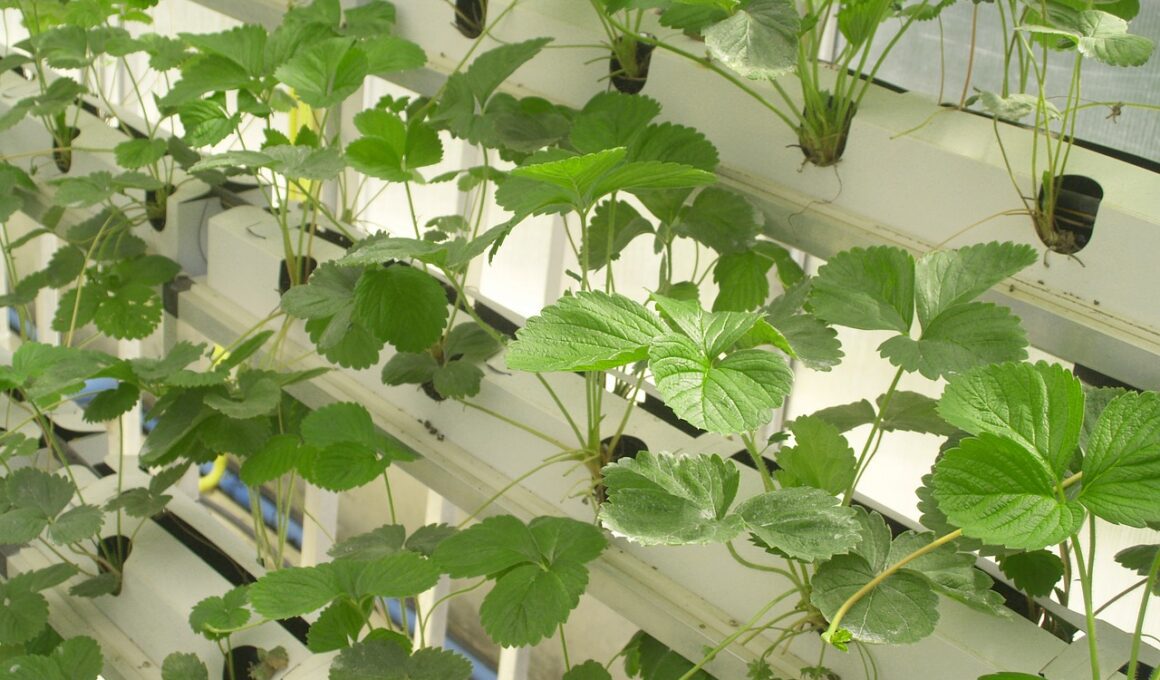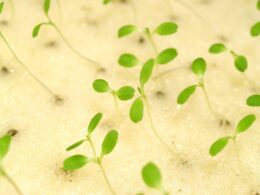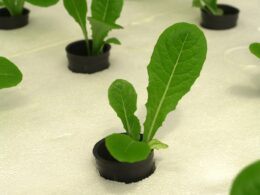Are you noticing an unpleasant smell coming from your hydro? Is it reminiscent of old water or something stagnant? If so, you’re not alone. This is a common issue that many hydro owners face, but it’s important to address it promptly to ensure your safety.
There are several reasons why your hydro may have a foul odor. It could be due to the water source, bacterial growth, or even mold. Regardless of the cause, it’s crucial to take action to eliminate the odor and prevent any potential health risks.
In this article, we’ll explore the causes of old water smell in your hydro, how to check for contamination, and tips to clean and disinfect your system. We’ll also provide you with preventative measures to avoid future odors.
By the end of this article, you’ll have the knowledge to keep your hydro odor-free and safe for use.
Understand the Causes of Old Water Smell
You’re probably wondering why the water in your hydroponic system has a musty, stale odor. The answer lies in the common causes of old water smell, one of which is chemical reactions.
Over time, the water in your hydroponic system may interact with the materials it comes into contact with, such as plastic or metal pipes. This interaction can cause chemical reactions that result in the musty smell you’re experiencing.
Another possible cause of old water smell is microbiological growth. It’s not uncommon for bacteria and other microorganisms to grow in the water in your hydroponic system, especially if the system is not properly maintained. These microorganisms can produce unpleasant odors that can be difficult to get rid of.
Lastly, hydroponic nutrient solutions can contribute to water odor issues. If the nutrients you’re using aren’t properly balanced, they can create an environment that is conducive to the growth of microorganisms and chemical reactions. Additionally, if the nutrient solution isn’t properly diluted, it can become too concentrated and lead to unpleasant odors in the water.
To avoid these issues, make sure to properly balance and dilute your nutrient solution. Understanding the causes of old water smell in your hydroponic system is essential to addressing the issue and ensuring the health of your plants. By taking steps to prevent chemical reactions, microbiological growth, and nutrient imbalances, you can keep your hydroponic system smelling fresh and clean. So, take the time to properly maintain your system, and you’ll be rewarded with healthy plants and fresh-smelling water.
Check for Visible Signs of Contamination
Take a close look for any signs of contamination in your water. Identifying sources of contamination is crucial in figuring out why your hydro smells like old water. Conducting water tests is the most effective way to pinpoint the exact source of the problem.
Here are three visible signs to look out for:
- Discoloration: If your water appears yellow or brown, it could be a sign of rust or sediment buildup in your pipes.
- Cloudiness: Cloudy water could indicate the presence of bacteria, which can cause unpleasant odors.
- Debris: Small particles or debris floating in your water could be a sign of a dirty filter or water source.
If you notice any of these signs, it’s important to take action immediately. The longer you wait, the worse the problem may become. Contact a professional to conduct a water test to identify the exact source of the issue.
Once you’ve identified the source of the problem, take steps to fix it. This may include replacing filters, cleaning your pipes, or treating the water with chemicals. By taking action promptly, you can ensure that your hydro is safe to use and free from unpleasant smells.
Remember, it’s always better to be safe than sorry when it comes to your water supply.
Can Over Oxygenating Tank Water Cause a Smell Similar to Old Water?
Over oxygenating tank water can potentially result in a peculiar smell reminiscent of old water. This occurs when an excessive amount of oxygen is introduced into the tank, disturbing the delicate balance of beneficial bacteria and potentially detrimental microorganisms. It is essential to maintain a proper oxygen level in the tank to prevent any unwanted odor from developing.
Clean and Disinfect Your Hydro
It’s crucial to clean and disinfect your hydro regularly to prevent the growth of harmful bacteria and ensure the safety of your plants.
The first step in cleaning your hydro is to empty out all the water and remove any debris or dead plant matter. After that, you can wash the hydro with soap and water, making sure to scrub any hard-to-reach areas.
There are also DIY cleaning methods you can use, such as vinegar or hydrogen peroxide solutions, which are natural disinfectants that won’t harm your plants. Simply mix equal parts water and vinegar or hydrogen peroxide, and use a clean cloth or sponge to wipe down the hydro. Be sure to rinse the hydro thoroughly with clean water after using these solutions.
Regular cleaning and disinfecting of your hydro is key to ensuring the health of your plants and preventing any unwanted odors. By using natural disinfectants and following these simple cleaning steps, you can keep your hydro fresh and safe for your plants.
Prevent Future Odors
To prevent future odors in your hydro, you need to perform regular maintenance. This includes flushing your hydro before use and using a water filter.
By doing these simple steps, you can ensure that your hydro stays clean and fresh-smelling.
Regular Maintenance
Maintaining your hydro regularly can help prevent unpleasant odors from developing. Prevention techniques include checking the pH and nutrient levels, keeping the water temperature consistent, and ensuring proper circulation and oxygenation. You can also perform DIY cleaning tips such as changing the water every two weeks, cleaning the reservoir and tubing with mild soap and water, and adding beneficial bacteria to the hydroponic system.
Regular maintenance not only prevents odors but also promotes healthy plant growth. Proper water and nutrient levels ensure that your plants receive the necessary nutrients to thrive. Consistent temperature and oxygenation help prevent the growth of harmful bacteria and fungi. By incorporating these maintenance practices into your routine, you can prevent unpleasant odors and ensure a healthy hydroponic system for your plants to grow.
Flushing Before Use
Before you start using your hydro, make sure to flush it out with fresh water to ensure that your plants have a clean and healthy environment to grow in.
Flushing your hydro before use has many benefits, including removing any old water that may have been sitting in the system, which could be the source of the unpleasant smell. Flushing also helps to remove any buildup of minerals or nutrients that could be harmful to your plants.
When flushing your hydro, it’s important to use the best techniques to ensure that you’re getting rid of all the old water and buildup.
One effective technique is to run fresh water through the system until it runs clear, which indicates that all the old water and buildup has been removed. You can also add a flushing agent to the water to help break down any stubborn buildup.
By taking the time to properly flush your hydro before use, you’ll be creating a safe and healthy environment for your plants to grow and thrive.
Using a Water Filter
If you want to ensure your plants have the cleanest and healthiest environment possible, using a water filter in your hydro system is a great way to achieve this.
Benefits of filtration include removing impurities, such as chlorine, sediment, and other contaminants that can harm your plants. Filtration can also reduce odors and improve the overall taste of your water.
There are different types of water filters available, including carbon filters, reverse osmosis filters, and UV filters. Carbon filters are the most commonly used type of filter and are effective at removing chlorine, sediment, and other impurities.
Reverse osmosis filters are more expensive but can remove more impurities, including heavy metals and minerals. UV filters use ultraviolet light to kill bacteria and other microorganisms in the water.
Choosing the right filter for your hydro system will depend on your specific needs and budget.
Seek Professional Help if Needed
You might want to consider seeking professional help if the smell coming from your hydro system resembles stagnant water. This could be a sign of DIY hydro problems that need timely intervention. While it may seem tempting to try and fix the issue yourself, it’s important to remember that hydro systems are complex and require specialized knowledge.
A professional can help diagnose the issue and provide the appropriate solution, ensuring that your hydro system is safe and functioning properly. Here are some reasons why seeking professional help may be the best option:
- They have the knowledge and experience to identify the root cause of the issue.
- They can provide the appropriate solution to resolve the problem.
- They can ensure that the hydro system is safe and functioning properly.
- They can help prevent future issues from occurring.
Taking the time to seek professional help can save you money in the long run, as DIY fixes may only provide temporary relief and could result in more damage down the road. Don’t hesitate to reach out to a professional if you’re experiencing any issues with your hydro system.
Remember, safety should always be a top priority when dealing with hydro systems. Seeking professional help can provide peace of mind and ensure that your system is functioning properly. Don’t wait until it’s too late – reach out to a professional today.
Frequently Asked Questions
How often should I clean my hydro to prevent old water smell?
To prevent old water smell in your hydro, it’s important to establish a consistent cleaning schedule. Hydro maintenance is crucial to keeping your water fresh and safe for consumption.
A good rule of thumb is to clean your hydro every 1-2 weeks, depending on how often you use it. To clean, empty the water and remove any debris or residue. Use a mild soap and warm water to scrub the inside of the hydro, and rinse thoroughly.
Don’t forget to clean the cap and straw as well. Regular cleaning will not only prevent unpleasant odors, but also help keep your hydro in top condition for longer use.
So make hydro maintenance a priority and enjoy fresh, clean water all the time.
Can I use regular household cleaners to clean my hydro?
You may be wondering how to clean your hydro without harming the environment or your health. Thankfully, there are DIY cleaning solutions that are both effective and eco-friendly.
Avoid using harsh chemicals and instead opt for natural alternatives such as vinegar and baking soda. These household staples can effectively remove buildup and odors without leaving any harmful residue. Plus, they’re safe to use around your family and pets.
So, next time you need to clean your hydro, try these eco-friendly alternatives for a sparkling clean and fresh-smelling container.
Will adding bleach to my hydro water prevent old water smell?
To prevent your hydro water from smelling like old water, you may consider adding bleach to the water. Bleach is effective at killing bacteria and preventing the growth of algae, which can cause unpleasant odors.
However, if you prefer not to use bleach, there are alternative methods to keep your hydro water clean. One option is to use hydrogen peroxide, which is a natural disinfectant. Another option is to use a water conditioner, which can help prevent the growth of algae and bacteria.
Regardless of the method you choose, it’s important to regularly clean and maintain your hydro to prevent any potential health hazards.
What should I do if the old water smell persists even after cleaning and disinfecting?
If the old water smell persists even after cleaning and disinfecting your hydro, there are additional solutions you can try before seeking professional assistance. First, make sure you’re using clean, filtered water and replenishing it regularly.
You can also try adding a small amount of hydrogen peroxide or apple cider vinegar to the water to help eliminate any lingering bacteria or odors. If these methods don’t work, it may be time to consult a professional hydroponics expert to diagnose any underlying issues with your system.
Remember, maintaining a clean and healthy hydroponic system is crucial for the safety and success of your plants.
Can old water smell in my hydro be harmful to my health?
Inhaling old water odor can have negative effects on your health, including headaches, respiratory problems, and nausea. The formation of this smell in your hydro could be due to various factors such as stagnant water, lack of proper cleaning, or even the presence of bacteria.
To ensure your safety, it’s essential to regularly clean and disinfect your hydro and replace the water frequently. If the smell persists, it’s best to seek professional help to identify and address any underlying issues.
Remember, taking proactive measures to maintain a clean and healthy hydro can prevent potential health risks.
Conclusion
Congratulations, you’ve successfully tackled the problem of your hydro smelling like old water. By understanding the causes of the odor, checking for visible signs of contamination, and cleaning and disinfecting your hydro, you’ve eliminated the unpleasant smell.
But how can you prevent future odors from occurring? Simple practices such as changing the water frequently, using a filter, and adding a capful of bleach to the water can go a long way in preventing odors from developing.
If, despite your best efforts, the smell persists, don’t hesitate to seek professional help. A plumber or water treatment specialist can identify the root cause of the problem and provide a solution that will give you peace of mind.
Remember, clean and fresh water is essential for your health and well-being, so don’t let a foul odor ruin your hydro experience. Keep your hydro clean and well-maintained, and enjoy the many benefits it can offer.









